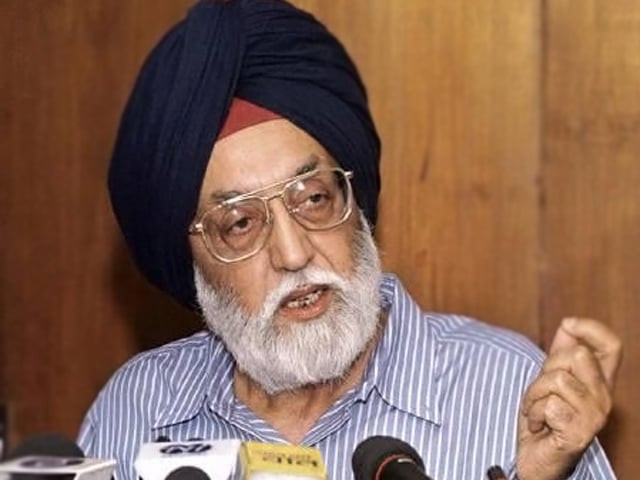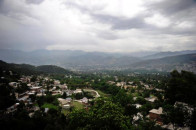Bilateral relations: ‘Trade agreement can benefit Pakistan, India’
Former chief election commissioner of India delivers a lecture.

Former chief election commissioner of India Manohar Singh Gill. PHOTO: REUTERS/ FILE
“Ties between India and Pakistan need to be strengthened through dialogue, increased people-to-people contact, free trade and learning from each other’s experiences,” Manohar Singh Gill, a former chief election commissioner of India, said on Friday.
Delivering a lecture on Agricultural Development, Trade and Bilateral Relations at the University of Agriculture, Faisalabad (UAF), he said dialogue and increased interaction were imperative to reduce differences between the two nations.
He said a Mandi Board had been set up in the Indian Punjab. “As many as 1,200 model agriculture markets are functioning under the board.”
Gill said the model could also prove useful in Pakistan to protect farmers from being exploited by middlemen.

“As much as 1.4 million tonnes of wheat was produced in India this year… The government purchased all of it at a support price,” he said.
Gill said per acre farm produce in the Indian Punjab was nearly twice that of Pakistani Punjab. “The government is providing heavy subsidies on fertilisers and agriculture inputs in addition to free electricity,” he added.
He said the government was also providing loans to farmers for purchase of modern machinery. “As any as 1.2 million tube-wells are operating in the Indian Punjab… More than 70 per cent of land is being irrigated through tube-wells… Thirty per cent is being irrigated through canals,” he said.
Gill stressed the need to conserve water as it was scarce and would become even more scarce in years to come.
Talking about population, he said the population control was a major challenge for both the countries. “India’s population was 120 million in 1947… now it has risen to 1.2 billion.”
The former Indian chief election commissioner said he was impressed by the fact that 47 per cent of the 16,000 students at the UAF were girls.
He said the UAF was “the mother of all agricultural institutions in the subcontinent and had played a pivotal role in bringing about the green revolution.”
UAF Vice Chancellor Iqrar Ahmad Khan said agricultural ties between India and Pakistan would help deal with the challenge of achieving food security. For this, he said scientists and researchers from both countries should work together.
“The world population will reach nine billion by 2050. Pakistan’s population is almost 190 million… Policy measures are needed to control the increasing population.”
Agriculture Secretary Ijaz Munir said the provincial government was taking several measures to raise the agricultural production.
Workshop on leadership skills from March 31
Faisalabad. University of California Board of Regents member Sadia Saifuddin will deliver special lectures at a two-day workshop on leadership skills at the University of Agriculture, Faisalabad (UAF) on March 31.
Saifuddin currently serving as the UC student regent-designate is the first Muslim to sit on the board.
She will be at the UAF from March 30 to April 3.
Published in The Express Tribune, March 29th, 2014.



















COMMENTS
Comments are moderated and generally will be posted if they are on-topic and not abusive.
For more information, please see our Comments FAQ